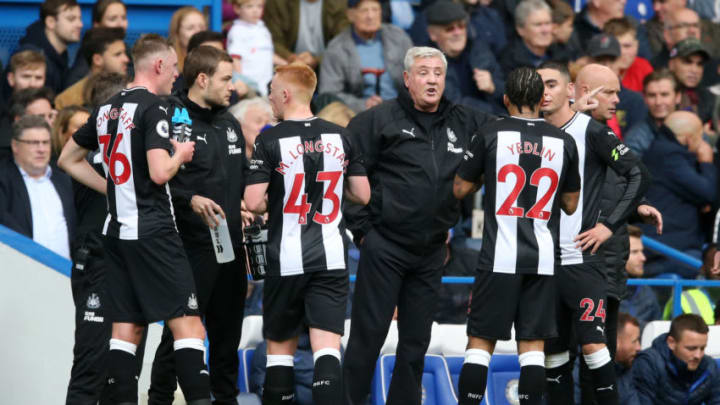Newcastle United have deployed multiple formations this season, but they need to stick with the 3-4-3 shape going forward.
Newcastle United have already had their fair share of ups and downs to start the season and this is reflected in their performance record of two wins, two draws and five losses. I understand that the arrival of a new manager late in preseason and the addition of some new players a week before the season began played a major role in this slow start, however, experimenting with the wrong formations has also hurt the team.
So far this season we have seen the Magpies play in the following formations: 3-5-2, 4-5-1, 4-4-2 and 3-4-3. Of all these formations, Steve Bruce’s squad was at its best when playing in a 3-4-3 shape, and this was also the case under Rafa Benitez. If Newcastle United can stick with this formation during this stretch of winnable games through mid-December, the club stand a good chance of climbing the table. Here are a few reasons why Bruce should scrap his other experiments and solely focus on the 3-4-3 formation.
Support for Joelinton
With the other formations used by Bruce, Joelinton is the player who has suffered the most. Countless times this season, supporters have expressed their frustration with how isolated Joelinton has been up top. The Brazilian has had to go out wide or deep into midfield to get some touches on the ball, but the 3-4-3 formation would provide him with some much needed support.
This shape allows Joelinton to stay higher up the pitch while having midfield support in close proximity to thread a pass up the middle or deliver crosses into the box more frequently. Joelinton has only taken 14 shots this season, but I would not be surprised if he matched that tally after three or four games under this shape.
Pace in Midfield
Another reason why this formation would turn Newcastle United into a dangerous team is because of the pace the squad is blessed with in midfield. We’ve already seen how fast Miguel Almiron is, but over the last two weeks fans have been impressed with how quickly Allan Saint-Maximin can take the ball up the field from the middle of the park.
The best example of his pace with the ball can be seen in the video above where the Frenchman breaks past a few defenders and sets up Matty Longstaff’s goal against Manchester United. Playing in a more balanced or defensive formation prevents the Magpies’ speedsters from utilizing their primary skills. Playing in a 3-4-3 formation would give Almiron and Saint-Maximin the freedom to play higher up the pitch and use their pace and technical abilities to cut inside and create some chances for others and themselves.
Defensive Stability
Newcastle United would develop some consistency in the back by using the 3-4-3 formation. Firstly, the Magpies have simply performed much better with a back three instead of a back four or five. The 3-4-3 formation places more emphasis on attacking over defending and this actually helps the back-line because the opposition sees less of the ball, which translates to less defending for the Toon.
Newcastle United have conceded 14 goals from 9 matches, and this is important to note because goal differential will play an important role in determining who stays up and who goes down. At present, the odds are against Newcastle United staying up, but making a permanent shift to this formation could change things rather quickly.
